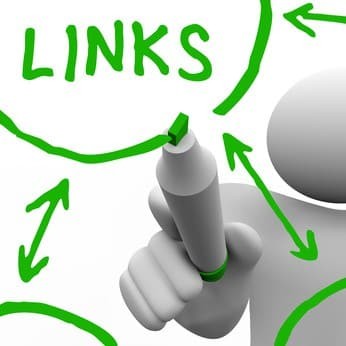
However, links have an insidious side to them; they can bring harm as well as benefit to your website.
For human beings, if we click on a link and it leads to nowhere or to something that is clearly wrong or disconnected we blame the website containing the link. It means that if your website contains out-of-date links, or links to old information, your visitors could well think less of you because you are not leading them to that new information that you were purporting to provide. Ultimately, poor links lead to reputational damage for your business.
But there is another problem with links too – Google. Google loves links. But Google also hates them as well. What you need are the “right” links in order to impress Google and make them want to rank your pages more highly in the search engine results.
Here’s the conundrum we all face. Google uses links as part of its ranking system. The more people that link to you in appropriate ways, the better. Equally, the more interconnected your website is to other useful and relevant material, the more you are demonstrating that you are indeed part of a “web” – the very ethos of the Internet.
So Google encourages links. So much so it is something that is easy to do. You can just get links anywhere you like. Indeed, in the past that’s what happened with “link farms” charging money to swap links from site to site so that people built up a wide array of links, thereby helping you theoretically gain ranking.
But Google is not so daft. It knows that links are only really valuable if people click on them. So they have to be relevant to real people reading the pages on which the links appear. So Google checks the quality of links too, resulting in the disappearance of those “link farms”.
Nowadays, many website owners use “content curation” to make their website appear interconnected. It is easy to do, as I explained in this article. Essentially, you publish extracts of other articles on your own website in order to provide links to useful information. It gives your website the benefit of showing you are linked to relevant information, thereby helping your search position – so the theory goes.
Hence, all kinds of software and plugins are now available to allow you to automate the process. But all that does is replace the “link farming” technique.
What Google wants is for you to do what people want. And that is for your website to act as an editor. Instead of automatically adding content to your website using content curation, you need to pick and choose only the best information. There is nothing wrong with using content curation software, providing you have acted in an editorial capacity, choosing the most relevant and useful material for your visitors.
Indeed, that’s what newspaper and magazine editors have been doing for centuries. They have always had the opportunity to carry more articles than they have space available. So they pick and choose. The magazines that are tough for PR people to get into, the ones that reject potential advertisers are the ones that usually gain the most respect. However, those “rags” that accept anything don’t really win readers at all.
Websites need to be the same. They need to only provide links to the very best, the most relevant and the most useful to their particular visitors. Not only does that win the respect of the reader, but – hey presto – it wins the respect of Google, as explained in the video below.



